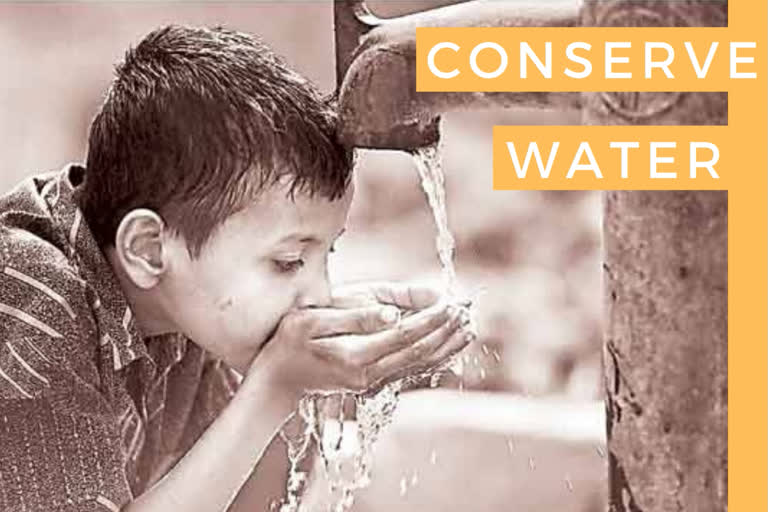Hyderabad: For a human being to survive, water is more necessary than food. Humans cannot live for long if there is no provision of water. That is the reason why the Supreme Court declared provision of drinking water a right to life and Central Minister Gajendra Singh Shekhawat proclaimed that providing drinking water is the responsibility of governments.
In his recent visit to Hyderabad, the Minister of Jal Shakti stated that he is planning to start a drinking water supply initiative along the lines of Mission Bhagiratha. Shekhawat informed that under Jal Jeevan Mission, the government intends to supply water to 14.60 crore families across the nation through taps by 2024. The estimated cost for this project is Rs 3.60 lakh crores. In fact, this proposal was made during Finance Minister Nirmala Sitharaman’s budget session.
Three months ago, there were reports that the central government would join hands with the state governments to initiate Nal Se Jal scheme and that the Jal Jeevan Mission would be formulated according to the needs of individual states.
Shekhawat, who revealed the cost of this scheme has now made it clear that it is possible only with the involvement of states. The central government, which gave directives to local organisations about the implementation of Jal Shakti Abhiyan across 256 districts and 1,592 blocks, is now assuring that it would satisfy drinking water needs with the help of state governments. If the states reduce unnecessary expenses and divert that money towards such vital schemes, the thirst of millions of people can be quenched.
One cannot put in words, the fate of those who travel kilometers in search of water. UNICEF has estimated that women and children are spending 20 crore productive hours per day worldwide in fetching water and that it is equivalent to 22,800 years. The statistics shown by the central government in the Lok Sabha revealed that people from 153 districts across 21 states are consuming water which is high in arsenic.
Last year, Duke University studies showed that underground water levels in more than 16 states are polluted with uranium. NITI Aayog numbers show that 60 crore people nationwide are suffering from water scarcity. The water crisis which is looming on cities and villages is reminding us of the scenario in Cape Town. The government’s dismal failure in providing the most basic of facilities to its people is evident.
Read: Water crisis in India: Hard times for cities
Along with the holy Ganges, many rivers are getting polluted as industrial and agricultural wastes are released into them. If water conservation is neglected, groundwater levels will drop to zero and reservoirs will be emptied in no time. In the wake of these warnings, we must wake up from our deep slumber.
It is said that the committee led by Mihir Shah, who worked in the erstwhile Planning Commission would submit a new draft National Water Policy bill in the next 6 months. The Shah committee must take into account various challenges and formulate the bill which would pave the way for a responsible water conservation stance.
Nations like Australia, UK, and South Africa are taking measures to reduce water consumption and prevent the groundwater levels from depleting. They are taking steps to prevent a water crisis. China, which aimed at achieving 95 per cent water quality across all river banks and cities by 2030, has employed 12 lakh people to monitor water conservation and incidence of water pollution.
While such strategies are not even given thought in India, the country has lost most of its water resources in its 70 years of Independence. To move past this situation, a new water conservation culture must be introduced. Right from farmers to common populace, everybody must be made aware that water conservation is the basis of livelihood. Water harvesting must be made a part of the school curriculum to educate the young minds from an early age.
Though the previous water policies had presented lofty ideas, none of them were of any use to the water conservation. The Pollution Control Board is deeply corrupted and did nothing to avert the impending water crisis. Policies for rainwater harvesting, effective water consumption and drain water recycling are as important as the guidelines’ implementation and commitment from all sections of the society. Accumulation of a dangerous bacterium E-Coli in Indian water pipelines and taps has deemed drinking water unfit for human consumption. Only if such dire instances are averted and prevented from repeating, we shall be considered responsible towards future generations.



